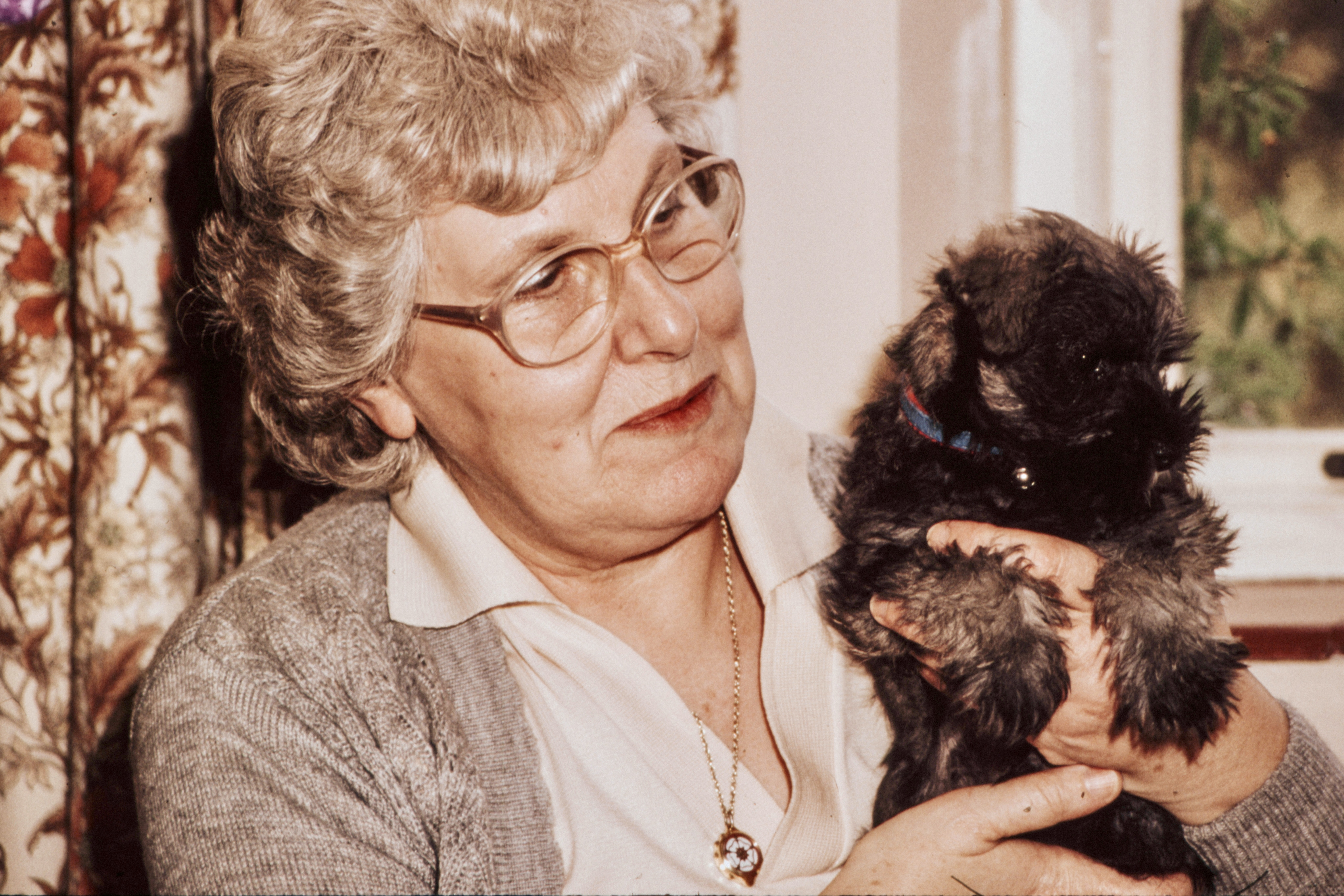


Written by Emily Cross.
13 minute read

When your nan dies, it’s completely normal to feel lost or unsure about what comes next. She might have been a steady presence in your life—someone who made you feel safe, loved, and seen. Saying goodbye can feel overwhelming, especially when you want to honour her in a way that truly reflects who she was. That’s where we come in. At Aura, we’re here to support you with warmth and care, so you never have to face this alone.
Because we understand that grief and grieving are deeply personal and differ to a large extent from one person to the next, we want to let you know that we are never going to push you in a particular direction. In fact, as a direct cremation services provider, our primary role is to make sure that you have the flexibility and freedom to remember your nan in the way you see fit at every stage.
We hope that by sharing these funeral poem ideas with you today that you may be able to find a poem, writer, or style that fits with how you feel and what you are trying to say. Even just reading a few of them may help you to begin to process how you feel at what may be a very difficult time.
Key takeaways:

We believe that our role as a family-run funeral provider extends far beyond the logistical and practical side of things. That’s why we want to take a moment to share a few insights and ideas that we have come across over the years.
Taking a moment to think about your nan’s personality and how she lived her life may help you to decide on the style of poetry that will be most appropriate. You could also reflect on your relationship with her and the memories you made together over the years.
Alternatively, you may find it easier to look directly at a range of poetic styles to see which one resonates with how you are feeling and encapsulates what you would like to say. Some common options are: traditional, modern, simple, and elaborate.
Though British funeral traditions are often thought of as quiet and reserved, more families are choosing to celebrate life rather than focus only on sorrow. If you’re drawn to poems that feel full of warmth and love, you might want to look for verses with a gentle, uplifting spirit.
It can also help to think about how close family members might feel hearing the words for the first time. If the poem feels honest, comforting, and in tune with the mood of those gathering to remember, it’s likely the right choice.
Poems come in all shapes and sizes, and finding verses that can be read in a minute or less may be something you wish to consider at this point. Opting for easy-to-read, accessible language combined with a naturally flowing rhythm may help ensure that the reading resonates with an audience that may have members who are not used to hearing poetry read aloud.
You have the right to choose any of the thousands of timeless funeral poems that have been written over the years, but we thought it may help if we made a few suggestions. As always, there is no pressure to accept our suggestions — they are merely here to serve as starting points if you feel they will be useful:
The use of simple yet poignant language in these three examples may help you to express how you feel and to remind others who hear the reading that memories always live on. Reframing death in this way is something that many people find helps when they come to start processing their emotions on a deeper level.
Here are some popular choices that you may wish to consider at your own pace when you feel emotionally ready:
Shorter poems that are warm, open, and have a degree of emotional restraint may be suitable for grandchildren to read if they so wish. If they feel able to be involved in the service, this is something that they may find helps them express how they feel when they are too young to find their own choice of words.
You may find that reading a selection of non-religious funeral poems feels like the most appropriate place to start, or you may prefer something else. The point here is that all approaches are equally valid and that you have the right to move forward in any way you see fit.
Secular poems that are free of religious or spiritual connotations focus instead on universal emotional qualities, such as kindness, and you may feel that they connect more with how you are feeling. Taking your time to explore a variety of options may help you to find a verse or line that you resonate with from the moment you read it aloud.
Writing your own poem to celebrate your nan is something that you may find helps you process your emotions and think about what she means to you on a deeper level. Adopting a free verse style where you are not constrained by rhyming patterns and traditional verse structures may help you ease yourself into the writing process. From there, you may find it helps to take some time by yourself to sit and reflect on those little habits that made your nan who she was.
The way she laughed, her favourite TV show, the song she simply couldn’t stop whistling; these are all valid inclusions that you may wish to build your poem around. If you are able to work in some shared memories that talk about how her presence at the heart of the family touched so many more lives than your own, you may find that you can create something that resonates with your fellow mourners even more.
Using a specific set of memories or family traditions as your starting point may help you to base your poem around something that you feel you can hold onto. The goal here is to let your creative side feel free and able to express itself at a time when there are so many different emotions already at play.
Stepping back from the complex world of structured poetry and writing in the first person so that it feels like you are speaking straight from the heart may help. Thinking about your poem as a short letter or note to your nan may also help you to express yourself if you are not used to composing your own poetry.
Keeping it simple and sincere
You may find that some of the books about grief and loss include a short line or verse that you feel connects and resonates. Not everything you consider has to be overly complex or artistic if you don’t want it to be, and sometimes simple, everyday language that is down-to-earth can have the biggest impact of all.
You could take such an extract and rework it in your own way to express your love for your nan in a way that you feel proud to call your own. Keeping things authentic and real here is always more important than searching for perfect phrasing and literary perfection.
Choosing someone who feels confident and is known to be composed may be the best approach when you are planning the readings. Poems are read at a variety of times during the service, either at the beginning or as part of the eulogy. Some families also find that a poem feels most natural when read aloud at the graveside.
Reading at a steady, calm pace and leaving natural breaks for emphasis and effect may help you convey how you are feeling and give those in attendance the space they need to process what you are saying.
It’s natural to feel some nerves while walking to the front of the service, but remembering why you are reading the poem, and perhaps practicing a little at home beforehand, will allow you to deliver the words that matter to you.
Preparing emotionally before reading aloud is a question of learning to manage your nerves so that you can express yourself with clarity at a time when it is understandable if emotions begin to take over. No one is expecting you to produce a word-perfect delivery, but you may find that a few practice runs at home the night before with your partner may help settle your nerves somewhat.
You may find our guide to heartfelt condolence messages helps you to find a closing line that forms the basis of a farewell verse. Alternatively, you may find it a little easier to take a quick look at a few of the suggestions below:
Using words that paint a picture of your nan continuing to live on through the memories she made while she was with you could be a powerful way to close. Doing so could provide an element of much-needed emotional cushioning at a time when many in attendance may still be in the initial state of shock or denial that the ‘five stages of grief’ process typically begins with.
We hope that you have found our guide helpful and that a few of our suggestions may have resonated with you in a way that helps on some level. As a funeral service provider who truly cares about the people and families we have the honour of serving, we believe we should extend our offer of help in as many ways as we can.
Some families find that our *prepaid funeral plans, which allow loved ones to get their affairs in order while still alive, can really help. We can also have a guide where we compare funeral plans, if that is something you feel may be helpful to you at this time. There is never any pressure when you come to us, and we are always here when you need us.
*Terms and conditions apply. You will receive a funeral plan summary before purchase to help you make an informed decision.



“Grandmother’s Garden” is a tribute to a grandmother’s nurturing way of living and her loving nature. The poem frames these beautiful characteristics as the starting point for many of life’s good things, and could help you to express how you are feeling at this time. “A Wonderful Grandmother” takes a similar approach by focusing on talking about how she had such a positive impact on the lives of the wider family and the many countless memories they made with her along the way.
Your grandmother is a woman you have the right to honour in any way you see fit, and that includes finding a poem that you feel speaks to her in a way you wish you were still able to. Many mourners find that a first-person poem feels like it comes from the heart and allows them to see themselves in the lines that are read during the funeral service or at the memorial.
Words such as “Remember me with smiles not tears, For all the joy through all the years,” focus on recalling happy memories and lighter moments at a time when everything may feel like it is focused on loss and grief. If you find that this type of positive messaging helps you, it may be something that the wider family and your nan’s circle of friends find helps too.
Choosing to write your own poem is something that you may find uplifting and empowering, as well as potentially serving as a form of emotional release that allows you to express how you feel. Starting by writing down a few memories in note form and then sitting and reflecting on how they make you feel would be our suggestion. You could then add adjectives and descriptive notes to start putting your feelings down on paper. Freeing yourself from set structures like rhyming patterns may also help you ease yourself into it.
Sites like Funeral Prints have a wide array of different keepsakes that you can adorn with various poems. You may find that searching in this way is a little more accessible than directly searching a database of poetry if that is not something you are all that familiar with.
staging site last replicated: MISSINGNO.